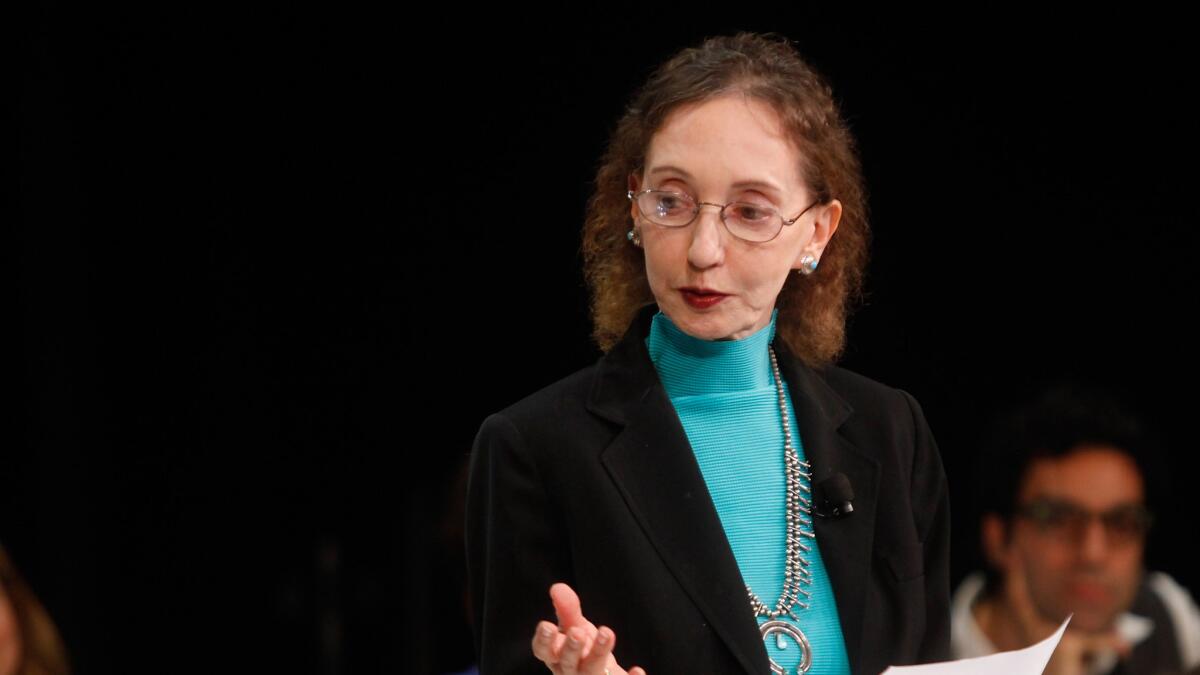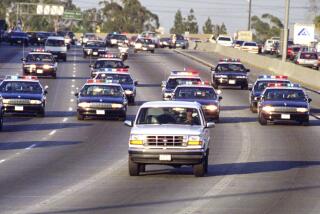Joyce Carol Oates sets Twitter ablaze with street harassment tweets

Joyce Carol Oates, bestselling novelist, massively prolific writer and Princeton professor, has an official Twitter account with more than 100,000 followers. On Thursday, she shared with them her thoughts on street harassment, part of a conversation started by a viral video.
In 10 hours of walking the streets of New York, a woman got more than 100 catcalls; the experience was edited down to a two-minute video. Noting that she is wearing a modest outfit of jeans and a crew-neck T-shirt (to counter the argument that women are harassed on the street because they are dressed provocatively), the video shows the woman walking, wearing headphones and not engaging with the men who approach her. Some are complimentary from a distance; others, when they get no response, amp up their overtures. Twice they fall in step next to her.
The video has been criticized for what appear to be two underlying issues: almost all the men doing the catcalling appear to be working class and African American or Latino. The video’s creator said that white guys did harass the actress in the video, but, for various reasons, they didn’t make the cut.
Apparently insensitive to those criticisms, Joyce Carol Oates decided to share her opinion in a pair of tweets:
“Isn’t harassment of women walking alone in urban areas -- (as men do freely & without incident) -- a matter of neighborhoods? In NYC, certainly,” she wrote in the first.
“Would be very surprised if women walking alone were harassed in affluent midtown NYC (Fifth Ave., Park Ave.), Washington Square Park etc.,” she wrote as a follow-up.
Oates generated many responses, almost universally challenging her assumptions.
“Do you think men in suits are any less crude than blue-collar men?” asked @auntchristine. Sarah Goodyear replied: “As a native NYer who grew up on the Upper East Side, I assure you street harassment happens all over these parts of town.” Citing other parts of New York, @ReadingtheEnd said: “I have been harassed in midtown Manhattan between Fifth and Park. Not just catcalling, ppl have touched me.” Andrea Grimes wrote: “Like how I was harassed literally every single day of college at NYU? Is that close enough to Washington Sq Park for you?” Meghan Clare tweeted: “So so so wrong. Clearly you’ve never worked in finance. Also was flat out groped on subway in UES.” Esta Fiesta added an invitation: “Oh yes we are. Come join me on my lunch break.”
Oates didn’t respond to any of these or the 100+ other replies to her tweets directly, but tried to turn the conversation to fiction.
“Does anyone recall Doris Lessing’s fiction in which a woman is far more energetically harassed on street when she wears a blond wig?” she asked, following with another tweet: “And when she wore a gray wig, no one noticed her.” (it may be “The Summer Before Dark,” but readers suggested that’s not exactly what happens).
“You are making your initial comments worse, just stop,” suggested user @Magicalradical. Replying to Oates, @DougalMurphy simply said, “Clue: FICTION.”
It’s not the first time that Oates has made insensitive statements on Twitter. In May, Michelle Dean posted two of Oates’ tweets on Gawker (“Where 99.3% of women report having been sexually harassed & rape is epidemic -- Egypt -- natural to inquire: what’s the predominant religion?” and “‘Cat food’ in China actually is”) and suggested the novelist delete her Twitter account.
Twitter: @paperhaus
More to Read
Sign up for our Book Club newsletter
Get the latest news, events and more from the Los Angeles Times Book Club, and help us get L.A. reading and talking.
You may occasionally receive promotional content from the Los Angeles Times.







